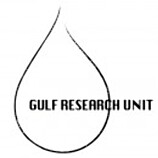
Archive: Gulf Research Blog
Blog articles from 2009 to 2012. The Gulf Research Unit is research programme based at the University of Oslo.
Oil wealth and regime characteristics
Denne artikkelen er over ti år gammel og kan inneholde utdatert informasjon.
By: Ingrid Krüger
How are regime characteristics affected by oil wealth? The State Fragility Index [1] (SFI) indicates that Norway is more “fragile” than, say, Sweden because of the Norwegian state’s oil wealth. The SFI measures state fragility in terms of the state’s effectiveness and legitimacy with respect to security, governance, economic development, and social development. The SFI “punishes” states that are more dependent on exports of primary goods (as opposed to manufactured goods) with a weaker economic legitimacy score and therefore with a higher state fragility score than other states, all else equal. In fact, based on SFI’s ranking, the economic legitimacy of the Norwegian state is lower than that of Zimbabwe.
The authors [2] behind the SFI point out that the petroleum producers in Africa and the Muslim regions of the world have highly autocratic regimes. Based on this statement, the motivation for “punishing” countries for their natural resource abundance appears to be the positive correlation between authoritarianism and oil wealth in the international data. However, the oil rich states’ natural resources indirectly ensure them high ratings of legitimacy and efficiency in other dimension, which measure e.g. GDP per capita, human development, and infant mortality. The oil rich Gulf States are, isolated speaking, directly “punished” – increasing the indexed fragility – for their natural resource dependence, but they are at the same time so developed economically that they in sum are deemed more efficient and legitimate than many other authoritarian states in the world.
The researcher is left with the task to explain why the Norwegian government, despite its oil wealth, is not in reality suffering from a lack of economic legitimacy, or why the regime in the Emirates, despite the high income levels and the high living standard of the UAE’s citizens, in fact suffer from illegitimacy in many respects. Theorizing the answers to these questions will help us to better understand when oil wealth matters (and when it does not matter) for the political development of states.
[1] For data and more information on the SFI, see http://www.systemicpeace.org/inscr/inscr.htm
[2] Marshall, Monty G. and George Mason. 2007 (p.13). “Global Report on Conflict, Governance and State Fragility 2007”, http://www.systemicpeace.org/peace.htm






